Hey Hive!
If you missed the last few posts, I've been sharing about our first trip to Seoul back in Nov 2022! We were waiting post-covid for everyone to go on their holidays before taking a big one and we finally decided to go on our honeymoon! It's also our first time experiencing Fall so we were double excited!
Last week, we started a particularly cloudy Sunday by going on the Seoul City Tour Bus! We've never taken a hop-on hop-off bus before and since we had it rough the day before getting caught in a storm we figured we'd take it easy today and see where the bus would take us.
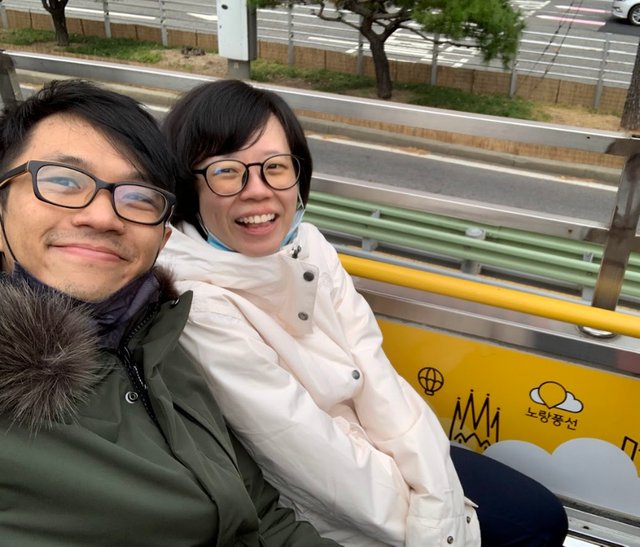
Our first stop was the Gyeongbokgung Palace which is arguably the most famous palace in Seoul, judging by the crowd.
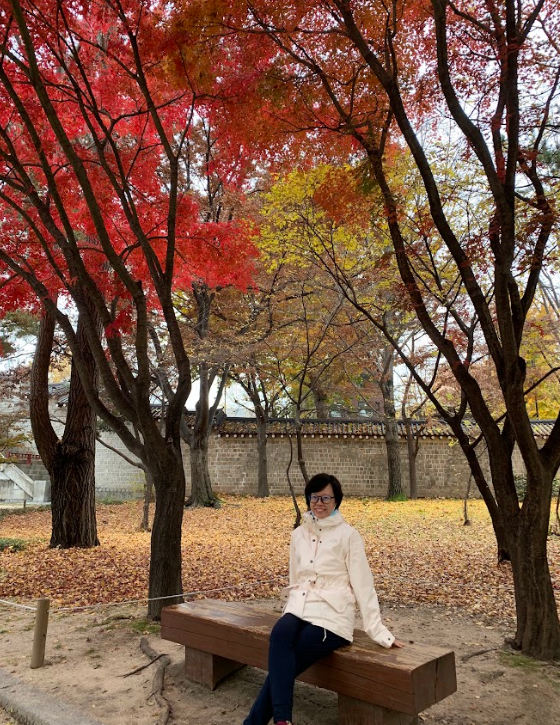
There were some nice fall trees near the side entrance where we got in, and we made our way to the main entrance and throne chamber.
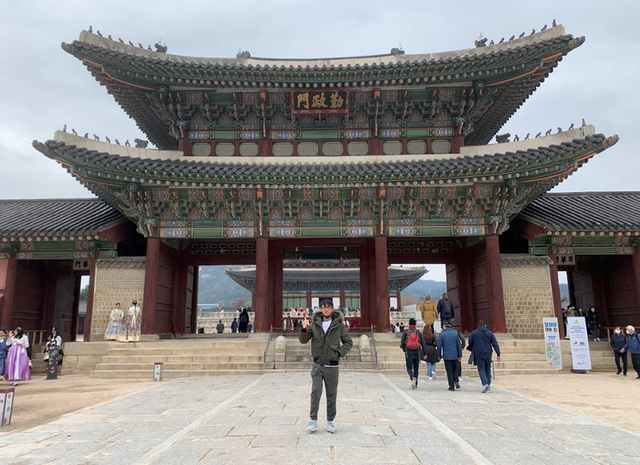
But there's still a lot more to see so let's-a-go!
13 Nov 2022. Sunday.
We walked around the perimeter of the throne chamber and found that there were these little statues of different animals on the corner of the railings. Initially we thought they were of the Chinese zodiac but we only found a few of them like this chicken:
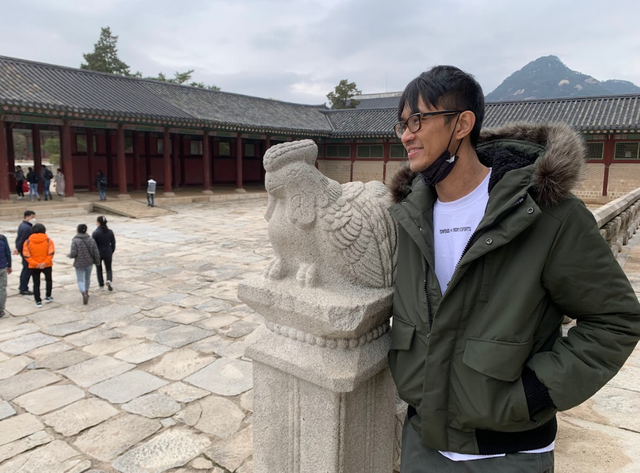
After that we walked back inside and explored more of the compound. I guess these were the servant's quarters or something similar.
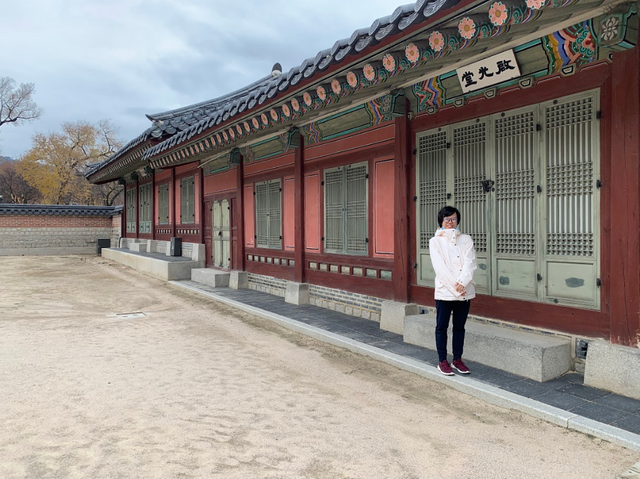
Here's some background history of Gyeongbokgung Palace:
Gyeongbokgung Palace was built in 1395 as the main royal palace three years after the Joseon Dynasty was founded by Yi Seong-gye. Its name means "the Palace Greatly Blessed by Heaven" and was deemed auspicious in geomancy as it was at the heart of Seoul with Mount Bugaksan to its rear and Mount Namsan in the foreground.
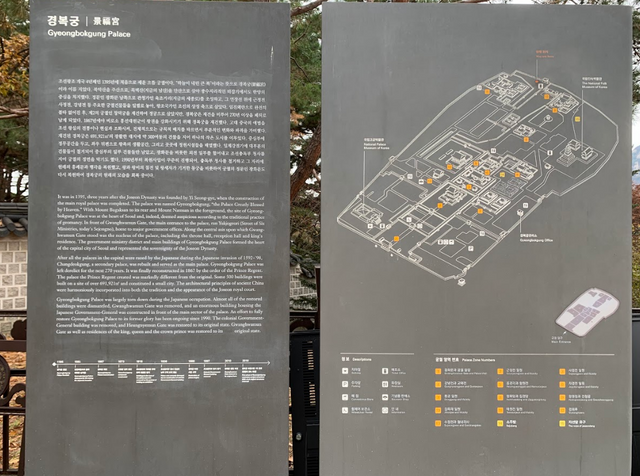
After all the palaces in the capital were destroyed by the Japanese during the invasion of 1592-'98, Changdeokgung was rebuilt and served as the main palace, while Gyeongbokgung was left derelict for the next 270 years. It was finally reconstructed in 1867 by order of Prince Regent.
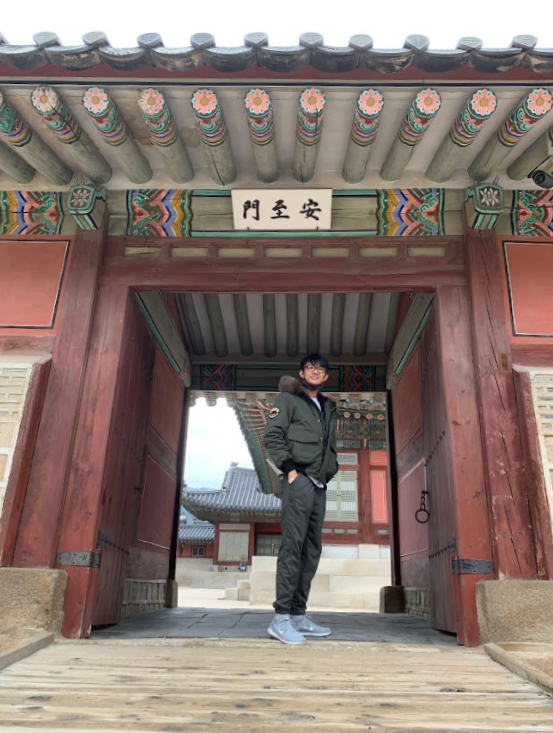
I think this palace definitely looks more used and run-down compared to Changdeokgung Palace which we visited earlier in our trip.
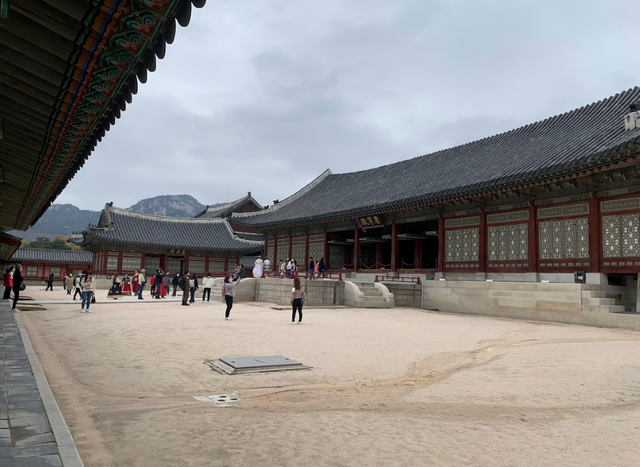
This building is called Jagyeongjeon and was the living quarters for Queen Dowager Jo, who was mother of the 24th king of the Joseon Dynasty. It was built and 1888 after the original structure was destroyed by fire.
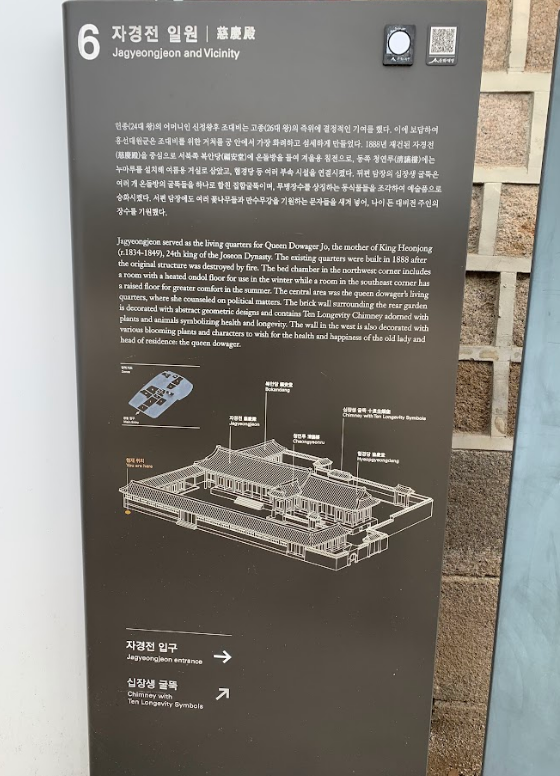
Unfortunately we weren't allowed to see the inside of the quarters I guess because it was either too fragile or only the exterior was restored.
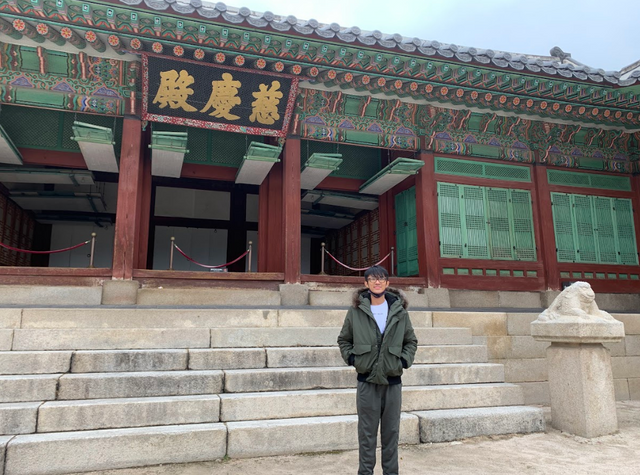
Still though, the architecture was stunning from the outside. The amount of detail put into these roofs and the fact that the colours are still quite visible and not faded at all so many decades later is impressive.
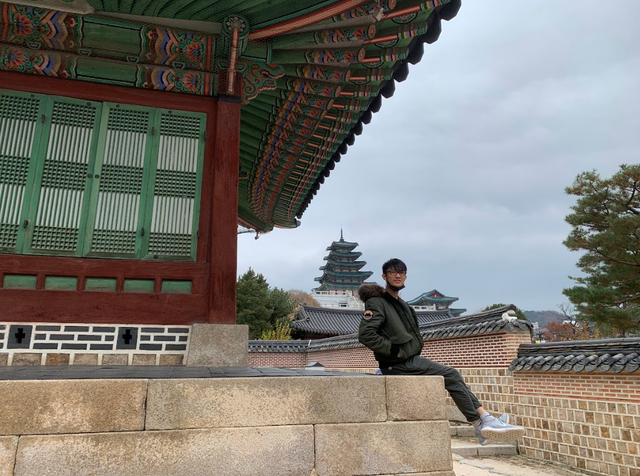
We thought that pagoda in the background looked pretty cool so we tried to make our way there to see if we could go inside.
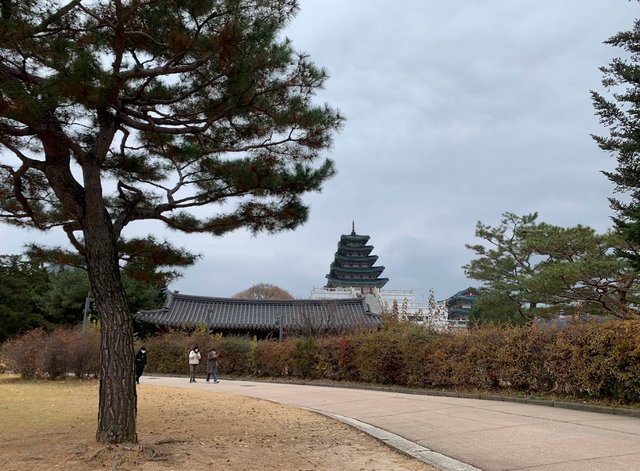
The weather was pretty cold out with so much cloud cover blocking the sun but we did get to enjoy some nice fall trees.
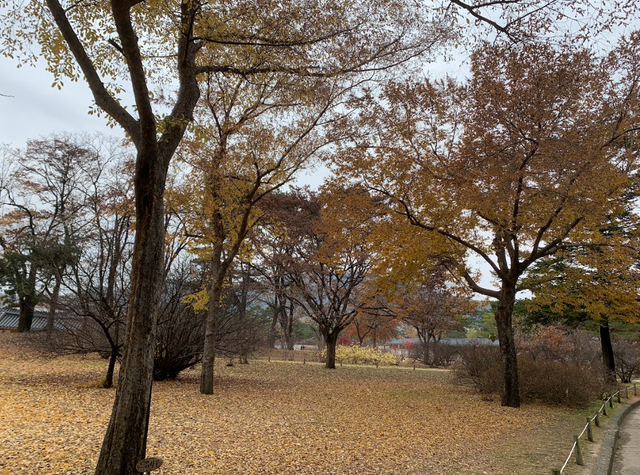
We came across this small pavilion with a moat around it that looked really nice.
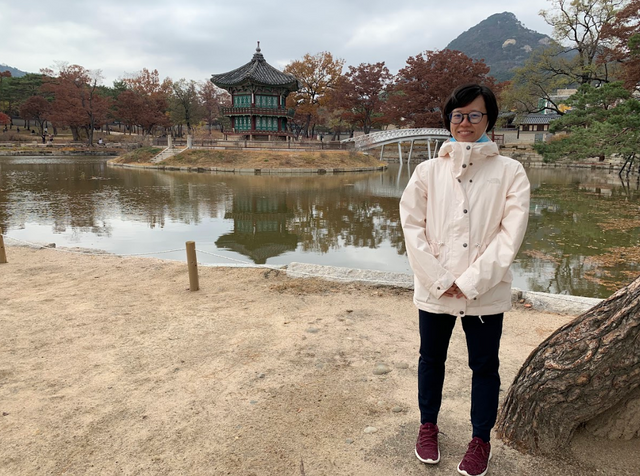
I'm not sure why they censored some of the information on the board but we did find it a little curious.
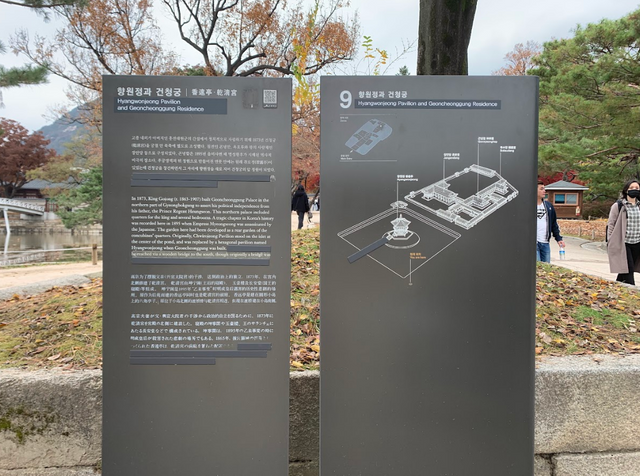
Turns out this area including some of the surrounding buildings was for King Gojong's concubines, known as the Geoncheonggung Residence. It was built in 1873 in the northern part of the overall Gyeongbokgung Palace for King Gojong to assert his political independence from his father. I guess Asian parents even back then were intolerable.
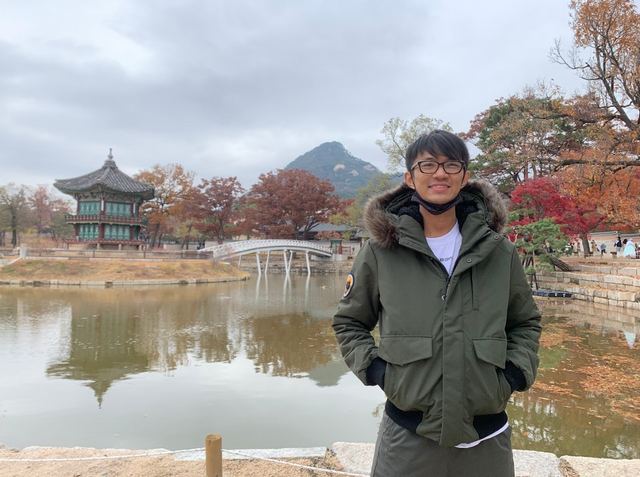
We thought the garden and pavilion was lovely, especially with all the surrounding fall trees.
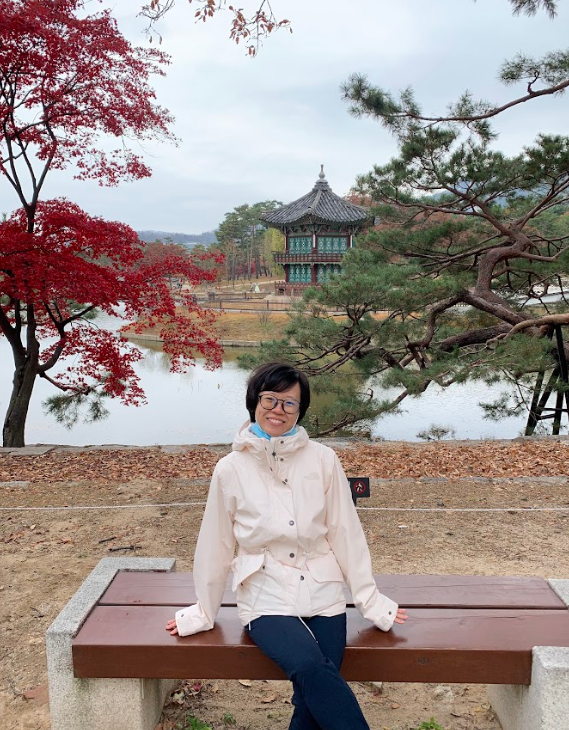
We managed to find our way to the bridge hoping to see if we could cross it to the pavilion itself but it was blocked. So we grabbed a photo with this very red tree.
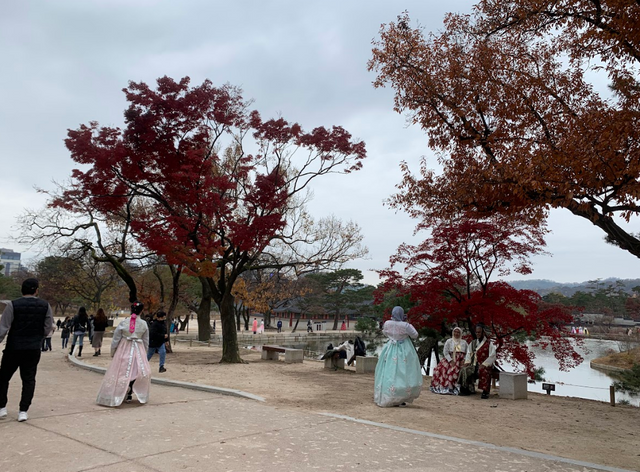
There were a lot of people going around the palace in hanbok was it was nice to see people of different cultures appreciating it too. There was this very nice-looking couple who had the same idea as us taking photos with the red leaves too. I especially liked that their outfits matched the leaves as well.
Here's a shot I took of the pavilion with the leaves. I tried to get as much as I could without obscuring it and include the reflection as well.
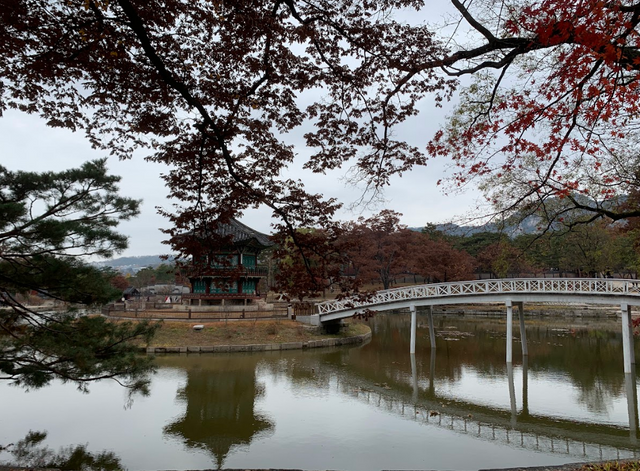
From the pavilion we made our way to another cluster of buildings.
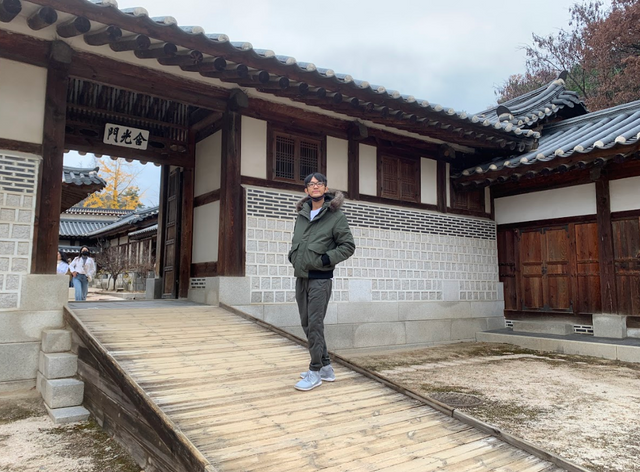
This area was known as Geoncheonggung and served as King Gojong's residence which he shared with his queen, Empress Myeongseong, whom unfortunately was assassinated by the Japanese in 1895 on these very grounds.
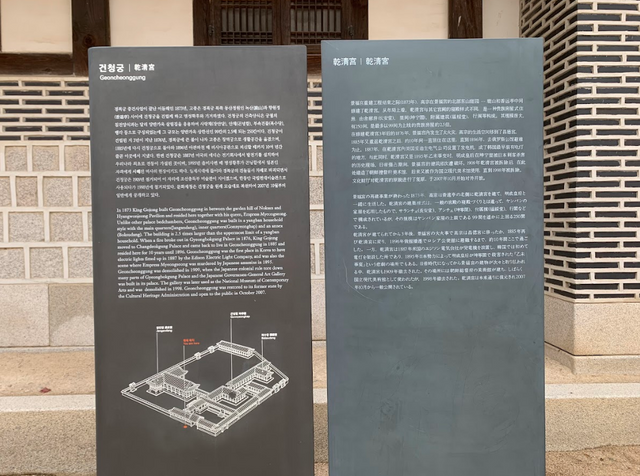
Geongcheonggung was later demolished in 1909, when Japanese colonial rule tore down many parts of the palace, and was later restored to its former state in 2007.
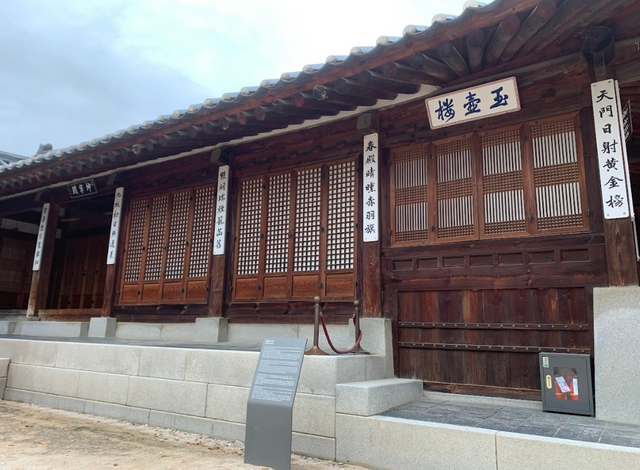
This building is Geonnyeounghap Hall and was the residence of Queen Myeongseong. Apparently this was also the place where she was assassinated, in retaliation to the royal family advocating for stronger ties between Korea and Russia in an attempt to block Japanese influence.
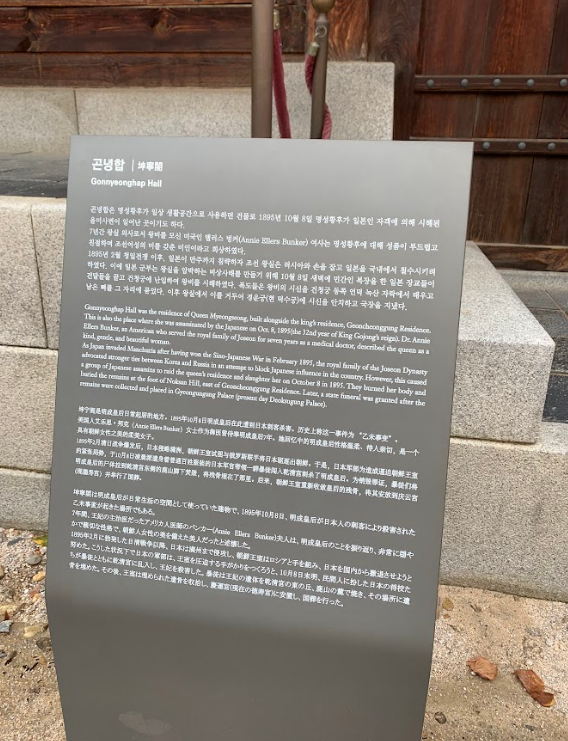
It feels wrong to be posing in front of the Queen's quarters knowing this now, but tbf that was ages ago. I guess that's the risk of being in the royal family.
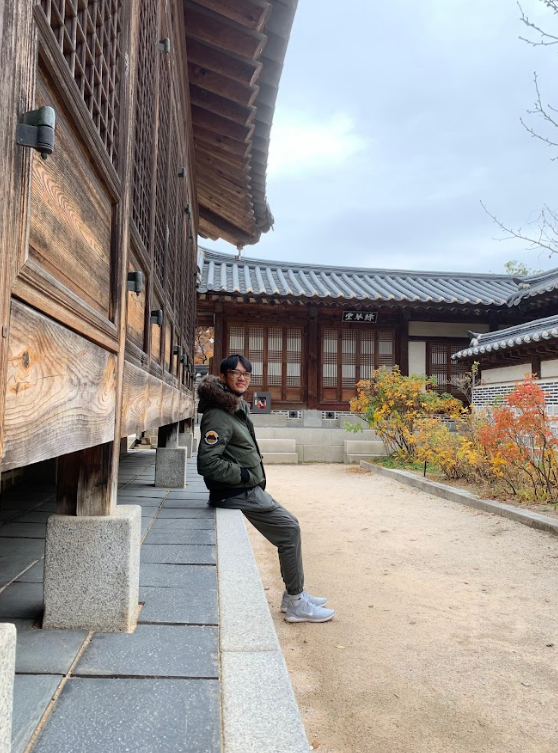
The last group of buildings we came across was this one which looked pretty cool; the way they were joined together.
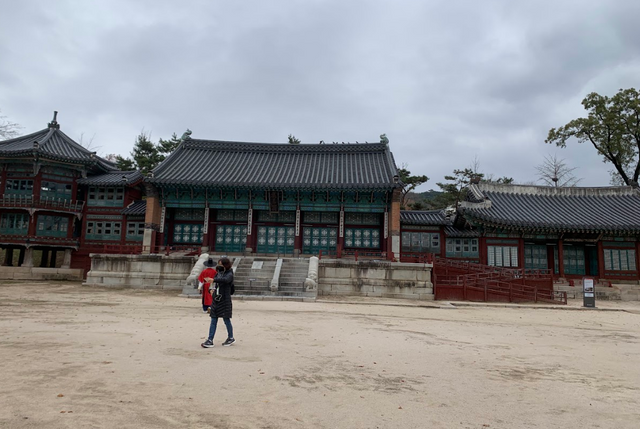
This area is called Jibokjae which means Hall of Collecting Jade, and served as a library and reception hall for receiving foreign envoys. These buildings look exotic as they have many Chinese characteristics and the buildings are connected by interior corridors.
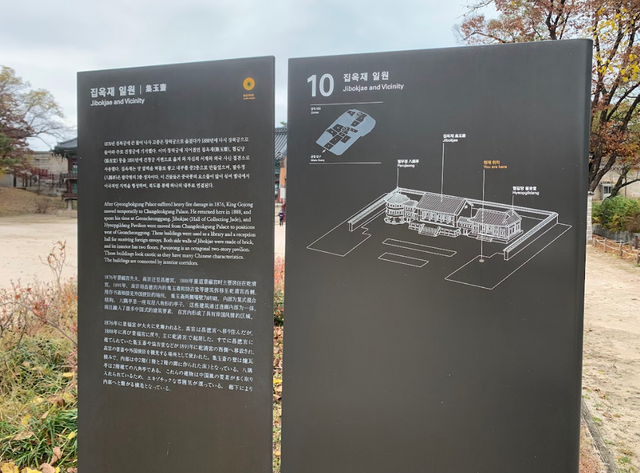
It did seem a little more Chinese compared to the other buildings, and I like that they combined different architecture styles for the foreign envoys. It's as if even the buildings themselves are serving as a medium of peace.
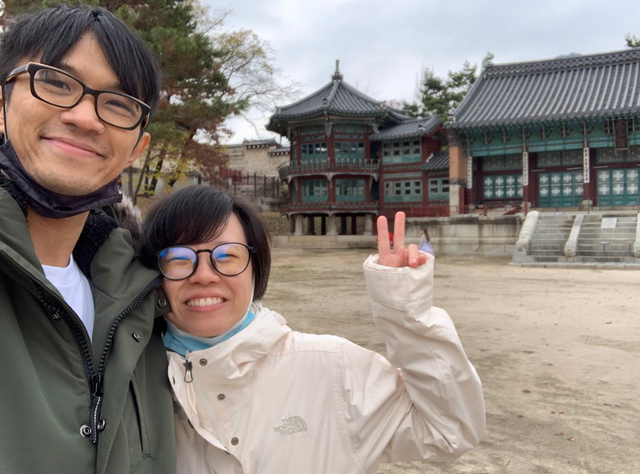
After that we started making our way towards the exit.
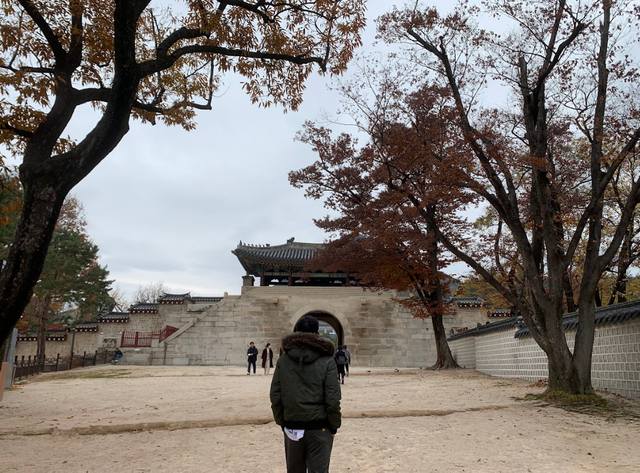
We wanted to go out through the main entrance but I guess that was just a one-way entrance, and all the signs were pointing us this way.
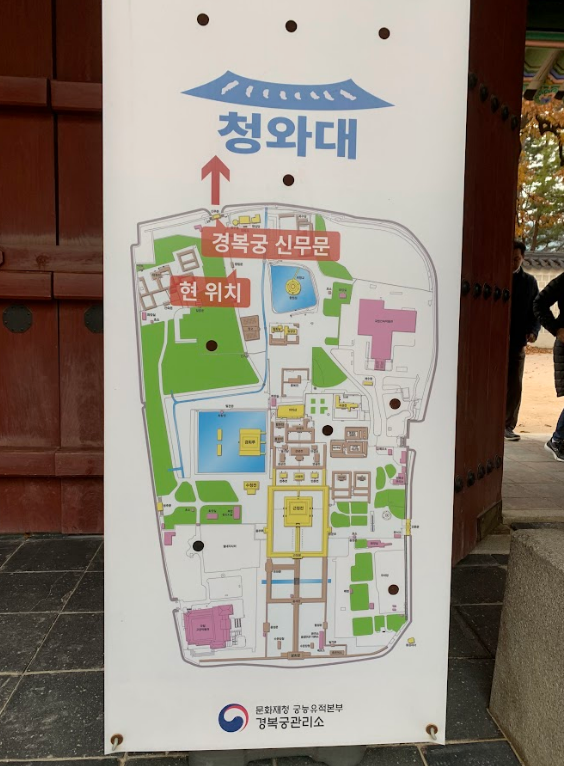
Despite the crowds, we had a nice time visiting the palace. But I think we definitely made the right decision doing our hanbok at Changdeokgung. The palace looked nicer and it was a sunnier day too.
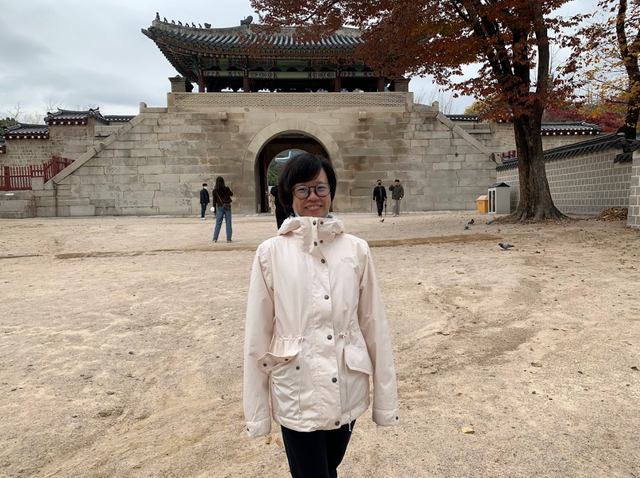
I think that's Mount Bugaksan in the background since we were exiting the rear of the Palace.
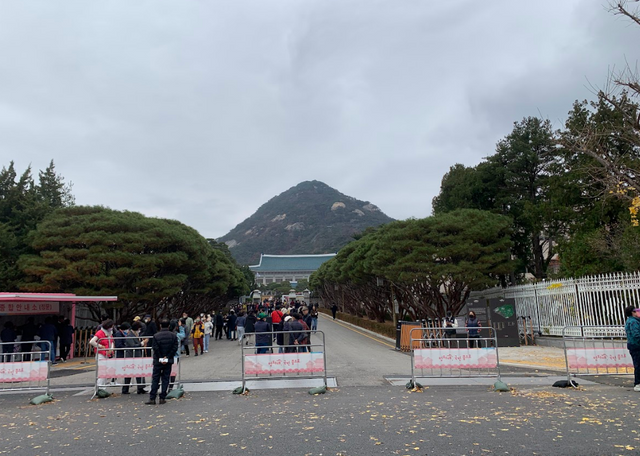
Outside the palace we saw some stands along the walkway including this heart-shaped one!
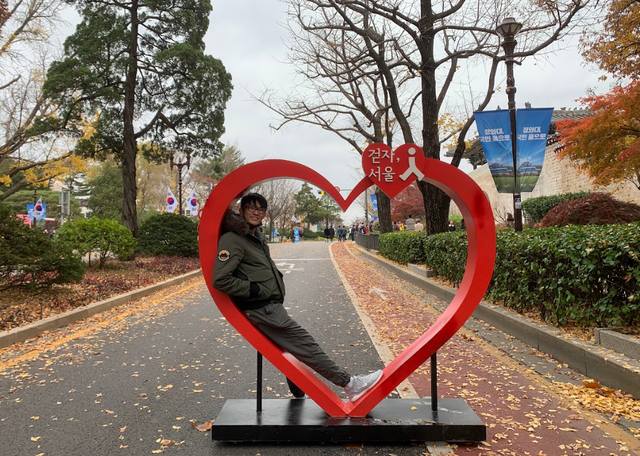
Too bad we couldn't take a photo with both of us in the heart.
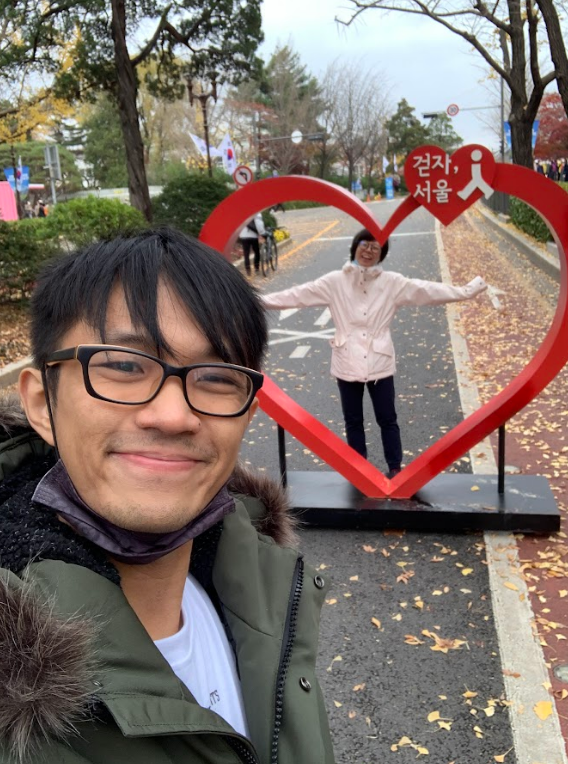
There was also this one which I think is for a flower event but I'm not too sure. It was a nice break to sit after a long while of walking though.
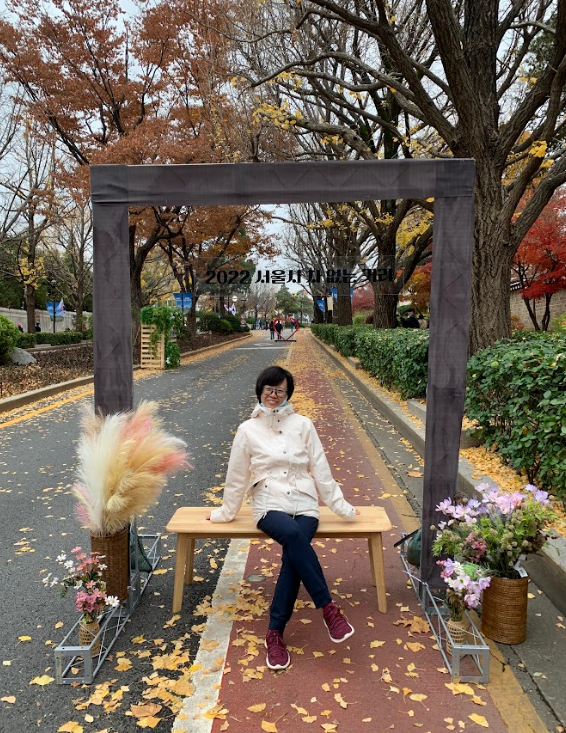
There was one other building we saw here which stood out compared to the palace since it looked more European in terms of architecture. It was also a little strange since it was outside the palace.
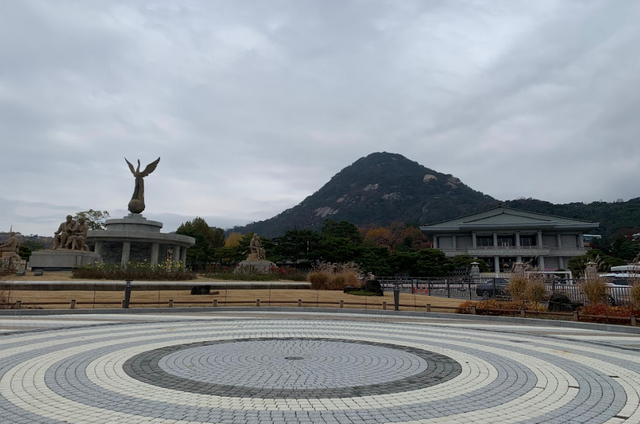
Turns out this building is called Cheong Wa Dae, also known as Blue House and served as the official residence and office of the president of the Republic of Korea from 1948 to 2022. I guess that's why it looked so modern comparatively.
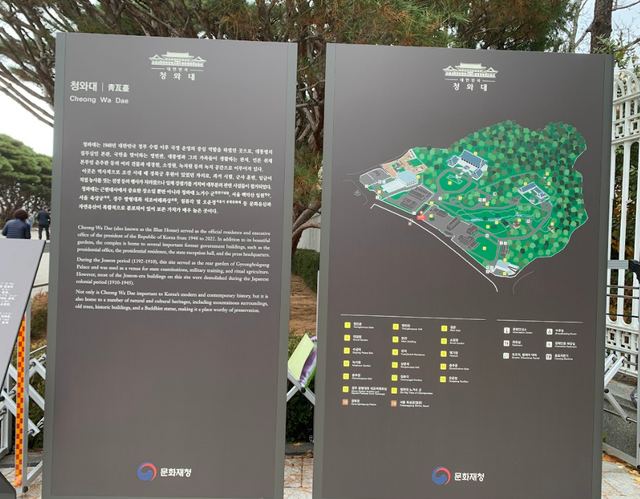
During the Joseon period (1392-1910), this site served as the rear garden of Gyeongbokgung Palace and was used for state examinations, military training and ritual agriculture.
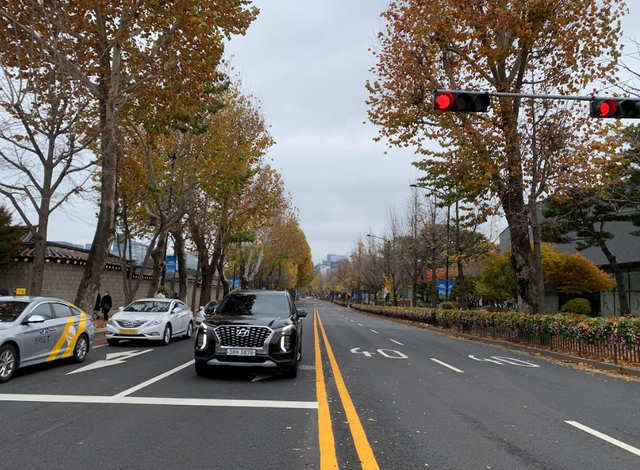
After we exited the palace, we made our way back to the bus stop to wait for the Seoul City Tour Bus. Thankfully we didn't have to wait too long since my feet were getting tired from walking. This is what the interior of the bus looked like, and we sat here instead since the top deck was full.
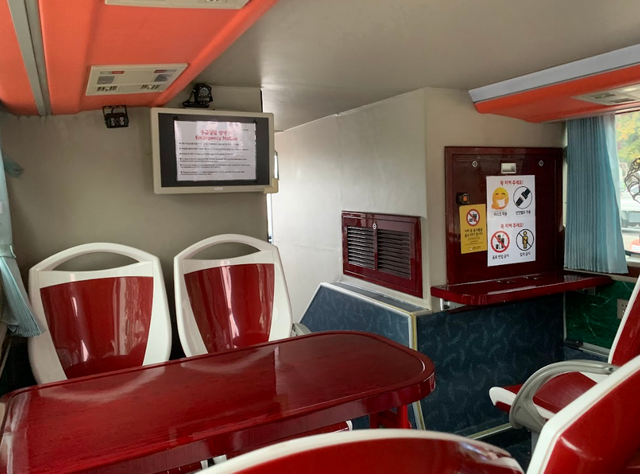
We took a break from our bus tour to go get some lunch but I think that's going to be it for now!
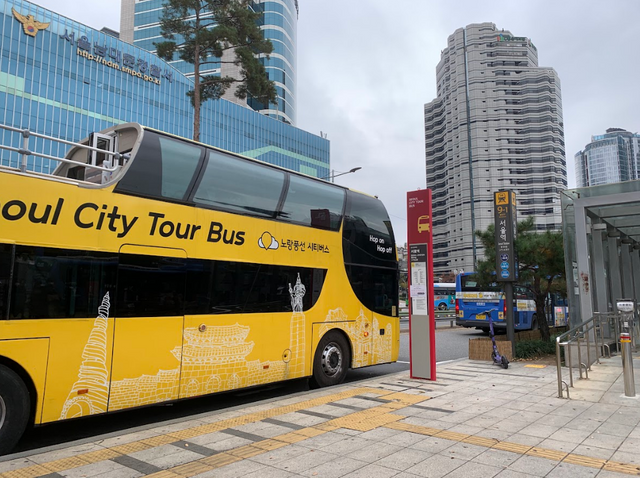
Thanks so much for reading!

To find out more about me, check out my intro post here!
Check out my previous post in this series!
TacoCat’s Travels #245 (Seoul): Seoul Sightseeing be Bussin 🚌
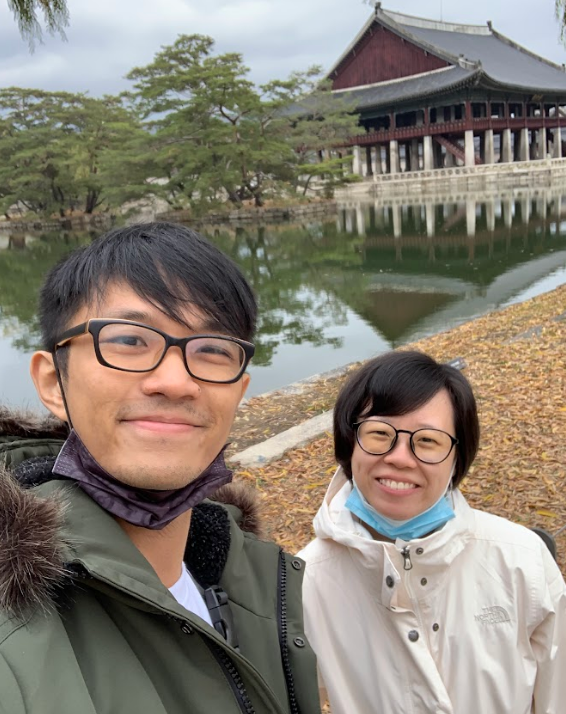
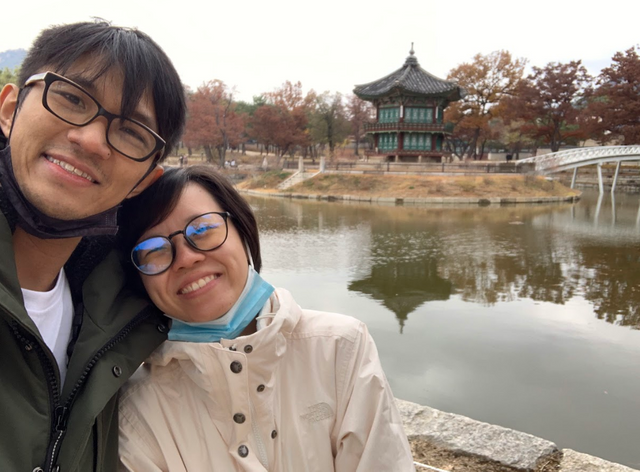
Congratulations @taco.cat! You received the biggest smile and some love from TravelFeed! Keep up the amazing blog. 😍 Your post was also chosen as top pick of the day and is now featured on the TravelFeed front page.
Thanks for using TravelFeed!
@invisusmundi (TravelFeed team)
PS: Why not share your blog posts to your family and friends with the convenient sharing buttons on TravelFeed?
Downvoting a post can decrease pending rewards and make it less visible. Common reasons:
Submit